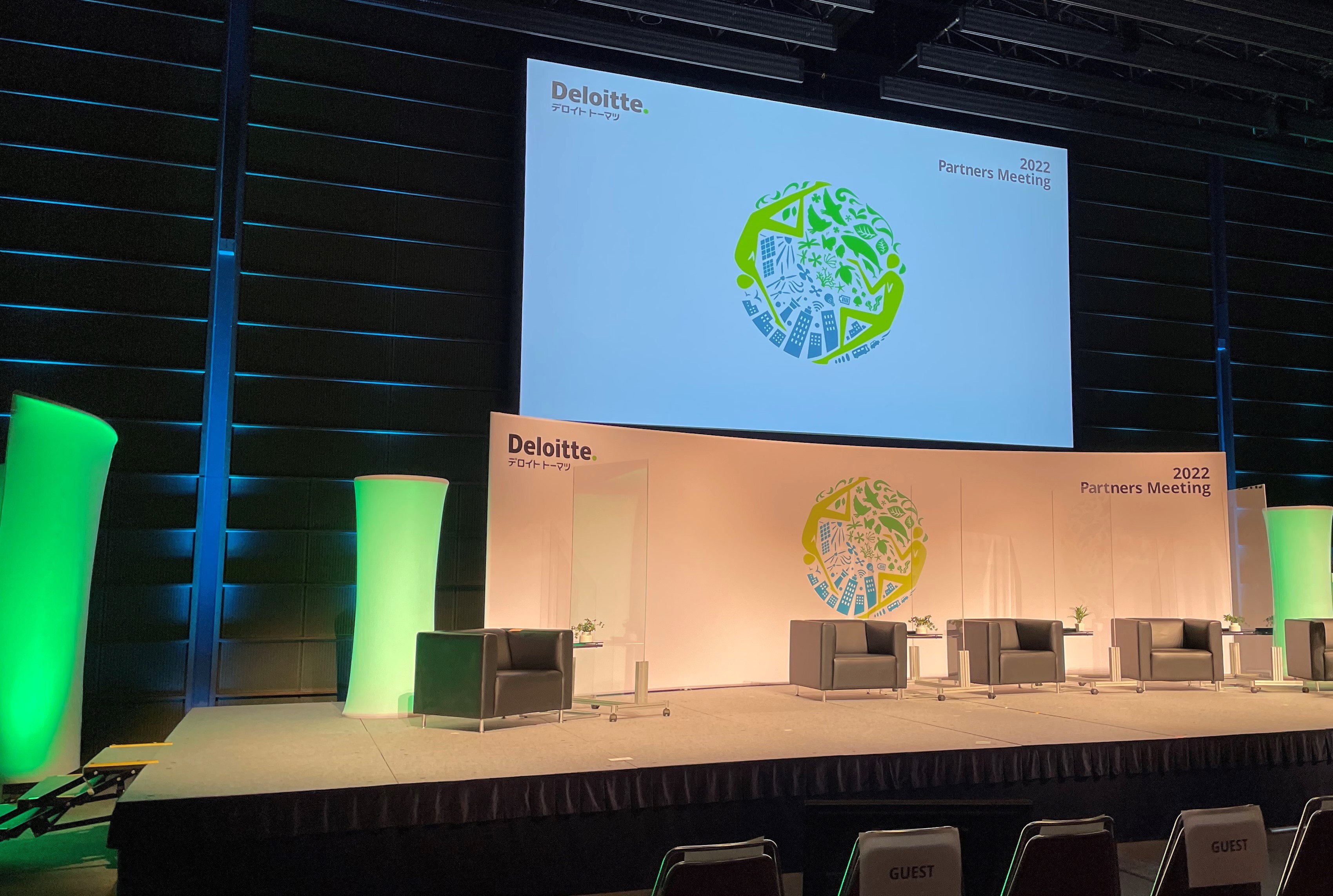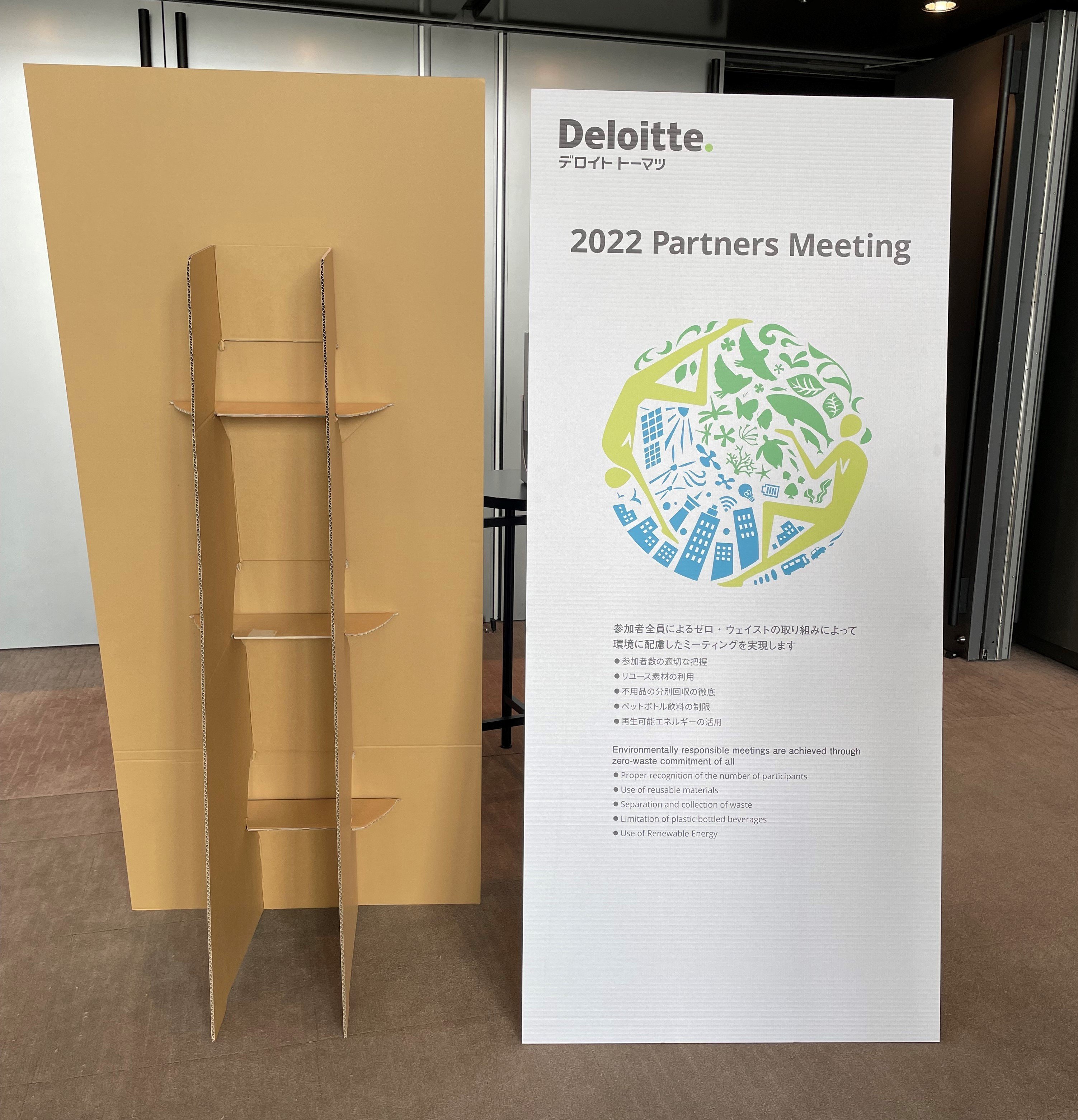Deloitte Tohmatsu Group's First Zero Waste Event
In a world where society increasingly expects businesses to do their part for the environment, Deloitte Tohmatsu Group (Chiyoda-ku, Tokyo, Group CEO: Kenichi Kimura) is committed to contributing to a fair and sustainable society. In line with the firm's "WorldClimate" initiative, which set the ambitious "Net-zero with 2030 goals", Deloitte Tohmatsu Group hosted a zero-waste event on September 13, 2022. This was the firm's first attempt at a zero-waste event, and preparations began as early as Spring 2022.
Held at the flagship Tokyo International Forum, the event was delivered in a hybrid format, and participants from overseas traveled to Tokyo for the event for the first time in 3 years. 1,000 participants in total attended the exciting event.
The 5 initiatives toward zero waste
This event focused on the following 5 areas to achieve zero waste.
- Prediction of attendance. (Preparation for the right number of lunch boxes)
- Reusing materials. (When possible, reusable materials were used in displays. Reusable lunch boxes were also utilized to minimize single-use materials.)
- Ensure the separate collection of disposable items. (In addition to standard trash cans (combustible/incombustible/bottle/can/pet bottle), etc., there were collection points for items such as the cardboard boxes from reusable flasks, ensuring adequate separation of trash types.)
- Reduction of plastic bottle use. (Along with the discontinuation of the provision of bottled beverages, there were water servers, and glasses were used as a replacement for paper cups in self-service. There were also charity sales of "my bottle."
- 5Use of renewable energy sources.
Various efforts were made to achieve these goals. For example, in anticipation of differences in awareness among the participants, the "waste separation and reduction efforts" were repeatedly announced in advance, and signboards made of cardboard were set up in places easily seen by participants to promote awareness of the zero-waste event.


Results and Future Challenges
The percentage of reused materials in the venue's decoration amounted to approximately 97% (fabric was later donated to a social welfare organization). Furthermore, using components consisting of an aluminum frame + fabric enabled compact packaging and transportation in small vehicles. In addition, fewer workers and installation time were required than with wooden decorations. On the other hand, it took much work to calculate the number of lunches that needed to be prepared, resulting in a large surplus showing areas with room for improvement.
The firm realized that the organizer's efforts alone would not be sufficient for the event and recognized the importance of the following initiatives and issues to be considered by all stakeholders, including the event venues, event vendors, and participants.
- Organizers: Manage the number of participants appropriately, while raising awareness of the significance of zero-waste initiative. (an increasingly important issue)
- Event venues: Waste separation rules differ depending on the venue used, as does access to renewable energy. The feasibility of zero-waste should be considered from the venue selection stage.
- Event vendors: Does the vendor have experience and expertise in built-up materials? Is waste weighing/reporting available? As with venue selection, the understanding and feasibility of zero-waste implementation should be considered.
- Participants: There is often a difference in ideas about zero-waste. Can we gain understanding and cooperation regarding SDGs? There is a need to communicate measures to participants continually.
Deloitte Tohmatsu Group will continue to implement zero-waste initiatives at major events and will work to achieve zero-waste at all events in the future.
Business Events Tokyo will continue to share examples of Tokyo's proactive approach to sustainability in business events.

